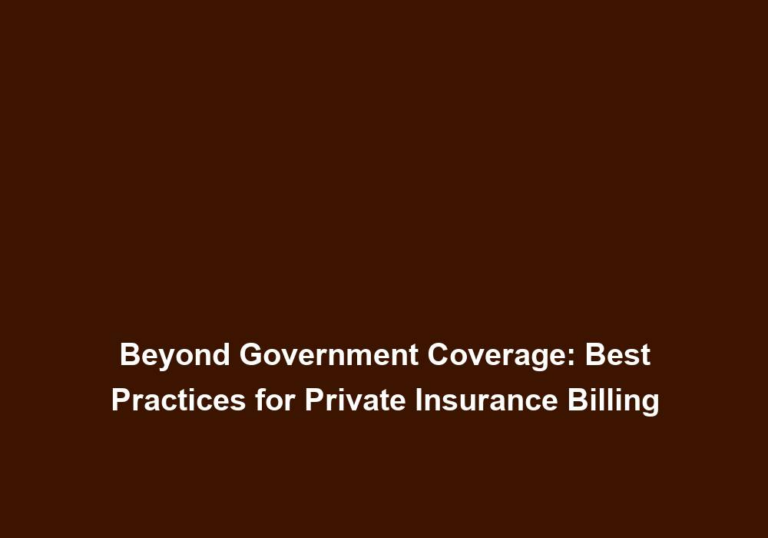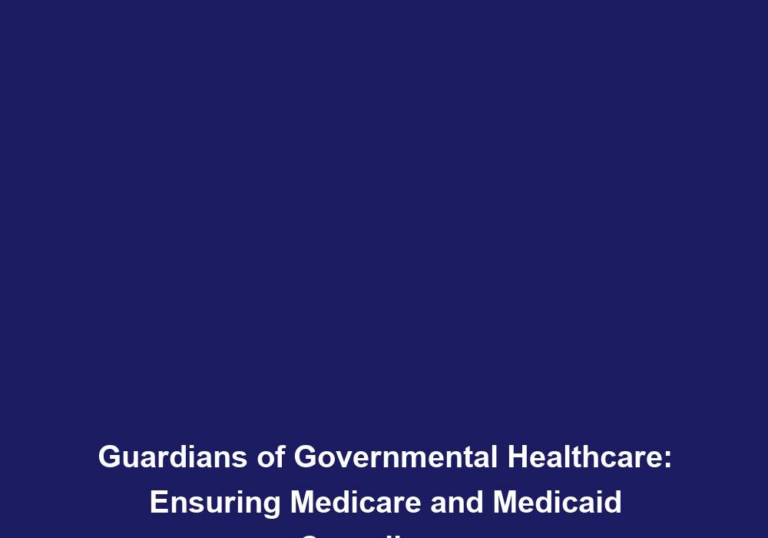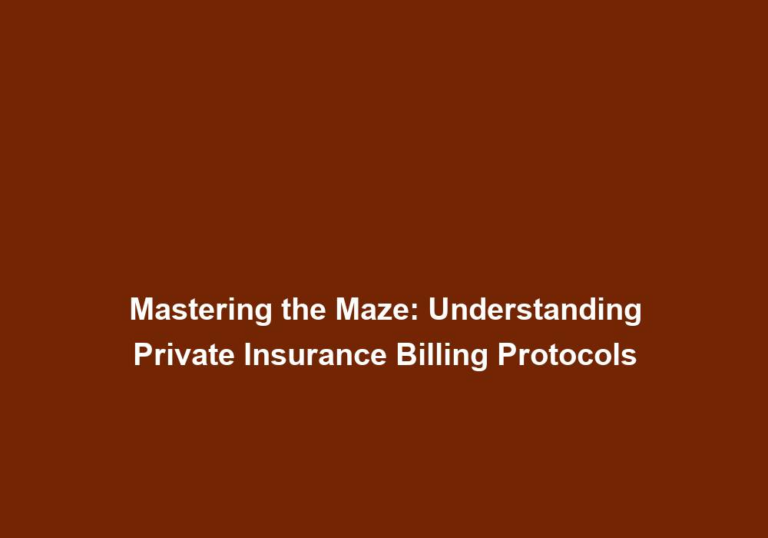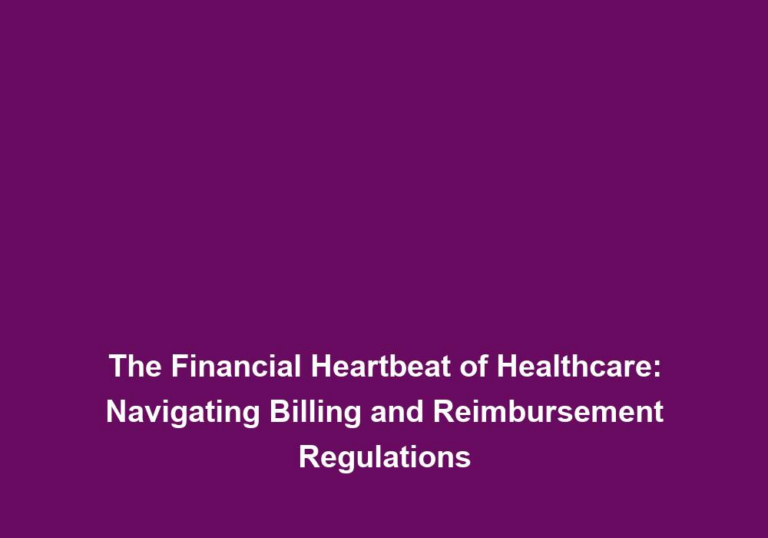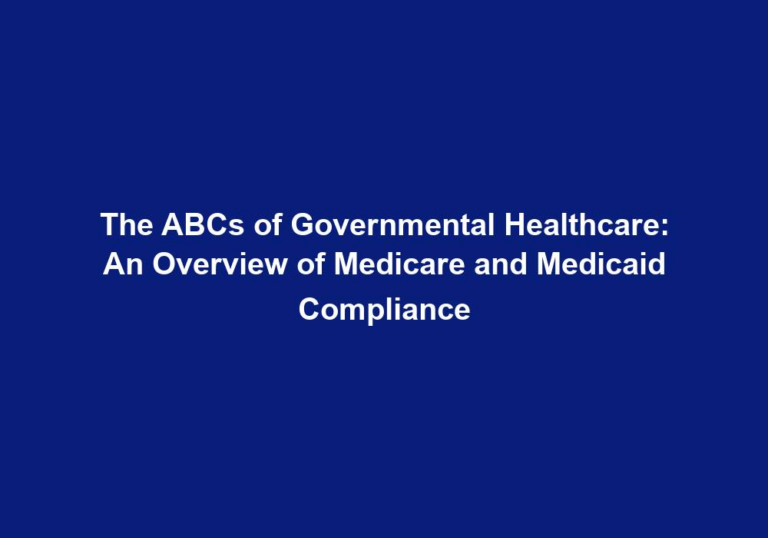Private Policies, Public Care: Navigating Private Insurance Billing Protocols
Private insurance plays a crucial role in ensuring individuals have access to quality healthcare services. As a healthcare provider, understanding the intricacies of private insurance billing protocols is vital for efficient and effective billing processes. This article aims to provide a comprehensive guide to navigating private insurance billing protocols, outlining key considerations and best practices.
Understanding Private Insurance Policies
Private insurance policies vary widely, and it’s essential to familiarize yourself with the specific policies and guidelines of each insurance company you work with. This understanding will help you navigate the billing process smoothly and avoid unnecessary claim denials or delays.
When reviewing private insurance policies, pay attention to the following:
-
Coverage and Benefits: It is crucial to understand the scope of coverage provided by the insurance company. Each insurance company may have different coverage policies, so it is important to know which services are covered and which may require prior authorization or fall under exclusions. This will help you determine the eligibility of the services you provide and avoid claim denials.
-
Medical Necessity: Familiarize yourself with the insurance company’s definition of medical necessity. Medical necessity refers to the services that are considered appropriate and essential for the diagnosis, treatment, or prevention of a medical condition. Ensure that the services you provide align with these requirements to avoid claim denials. It is important to document the medical necessity of each service provided to support the billing process.
-
Claims Submission: Understand the preferred method of claims submission by the insurance company. Some insurers have online portals or require specific paper forms. Adhering to their preferred submission process will expedite claims processing. Make sure to gather all the necessary information and supporting documentation required for claim submission to avoid any delays or rejections.
-
Timely Filing: Be aware of the insurance company’s timely filing requirements. Claims submitted beyond the specified timeframe may be denied. Develop efficient processes to ensure timely claim submission. Set up reminders or utilize software that helps you track and manage claim submission deadlines to avoid any missed opportunities for reimbursement.
-
Coding and Documentation: Stay updated with the current coding guidelines and requirements. Accurate coding and complete documentation are essential to prevent claim denials or potential audits. Familiarize yourself with the appropriate diagnostic and procedural codes for each service provided. Ensure that the documentation supports the codes billed and accurately reflects the complexity of the services rendered.
-
Reimbursement Rates: Familiarize yourself with the insurance company’s reimbursement rates. Understanding the allowed amounts for various services will help you negotiate fair contracts and avoid potential pitfalls. It is important to regularly review the reimbursement rates and negotiate with the insurance companies to ensure fair compensation for the services you provide.
Best Practices for Private Insurance Billing
Following best practices can significantly streamline your private insurance billing process, reduce claim denials, and maximize reimbursement. Consider the following recommendations:
1. Verify Patient Insurance Coverage
Before providing any services, verify the patient’s insurance coverage. This step ensures that the services you offer are covered by the patient’s insurance plan, minimizing potential claim denials or patient responsibility disputes. Obtain the necessary insurance information from the patient and contact the insurance company to confirm the coverage details, including any copayments, deductibles, or limitations.
2. Obtain Prior Authorizations
Certain services require prior authorization from the insurance company. Familiarize yourself with the insurance company’s prior authorization process and ensure timely submission. Failure to obtain prior authorizations can lead to claim denials. Establish a system within your practice to track and manage prior authorizations, ensuring that all necessary approvals are obtained before providing the services.
3. Accurate and Specific Coding
Accurate and specific coding is crucial for successful private insurance billing. Stay up-to-date with the latest coding guidelines and ensure that your coding accurately reflects the services provided. Avoid using generic codes that may not accurately capture the complexity of the service. Assign the appropriate diagnosis and procedure codes based on the patient’s condition and the services rendered. Regularly review and update your coding practices to avoid any potential coding errors or inaccuracies.
4. Complete and Detailed Documentation
Thorough and detailed documentation supports the services billed and is vital for successful private insurance billing. Ensure that all documentation is complete, legible, and includes necessary details such as patient history, examination findings, treatment plans, and any relevant test results. Document the medical necessity of each service provided and include any supporting documentation or reports that substantiate the need for the services. Complete and accurate documentation not only facilitates the billing process but also ensures continuity of care and effective communication among healthcare providers.
5. Timely Claim Submission
Submit claims as soon as possible to meet the insurance company’s timely filing requirements. Develop a streamlined process that allows for efficient claim submission, reducing the risk of denial due to missed submission deadlines. Implement electronic claim submission whenever possible, as it can expedite the processing time. Regularly review and monitor the status of submitted claims to ensure timely follow-up on any rejections or denials.
6. Address Claim Denials Promptly
Even with careful adherence to guidelines, claim denials may still occur. Promptly address claim denials by reviewing the reason for denial, correcting any errors, and resubmitting the claim with additional supporting documentation if necessary. Timely follow-up is essential to avoid potential revenue loss. Establish a system to track and manage claim denials, allowing for efficient resolution and resubmission. Regularly analyze the reasons for claim denials to identify any patterns or areas for improvement in your billing processes.
7. Stay Informed and Educated
Staying informed about changes in private insurance policies, coding guidelines, and billing regulations is crucial for successful billing. Attend relevant workshops, seminars, or webinars to enhance your knowledge and ensure compliance with evolving requirements. Engage in continuous education and professional development to stay up-to-date with industry changes and best practices. Regularly review the updates from insurance companies and professional organizations to adapt your billing processes accordingly.
Conclusion
Navigating private insurance billing protocols is a critical aspect of healthcare providers’ responsibilities. Understanding the intricacies of private insurance policies, adhering to best practices, and staying informed about changes will help streamline the billing process, reduce claim denials, and ensure optimal reimbursement. By following these guidelines, healthcare providers can focus on delivering high-quality care while effectively managing their billing operations.


